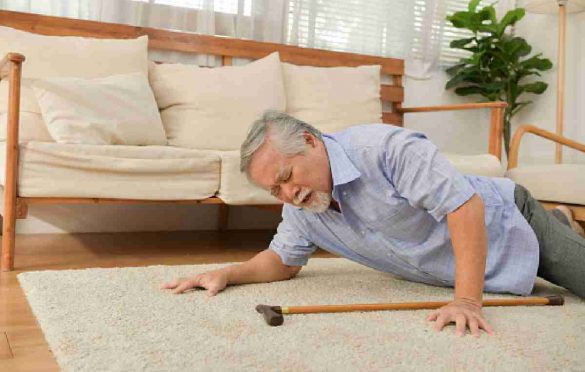What Are the Most Common Causes of Falls in Seniors?

As fleeting as falls might be, they can be life-changing events. A simple fall to the ground can cause you to break a bone or sustain a nasty cut or scrape.
While falls don’t all result in lifelong physical injuries, they can leave you with psychological trauma. As you age, you might become more fearful of falling and this can prevent you from living your life to the full.
Thousands of older adults fall every year and sustain major injuries. Falls are the leading cause of hospital admissions and fatalities in the elderly population, which is why taking falling prevention measures are so vital.
Not only are you more prone to falling as an older adult but you’re also more at risk of injuries. If you are now a senior above the age of 65, it’s important to take the right steps to reduce the risk of falls and injuries in your home and in public.
Learning about the most common causes of falls will help you to stay as safe as possible. Education about falls in the elderly will also be beneficial for the relatives of seniors or caregivers in nursing homes.
Table of Contents
Why Do Older Adults Fall?
Here are some of the common causes of falls in the elderly population.
Reduced Balance and Stability
As you age, your muscles can get weaker, including the muscles in your legs and feet. This causes you to become less stable on your feet and increases the risk of falls.
One of the best things that you can do to improve your balance and stability as a senior is exercise. Engaging in regular physical activity will help you to maintain strength in your lower body muscles so you are less likely to lose your balance.
Reduced Mobility and Flexibility
Alongside declining balance and stability, age can cause a decline in joint mobility and muscle flexibility. These problems can be exacerbated if you don’t exercise regularly.
When you don’t move your joints through their full range of motion, your body adapts by causing the joint to become stiff and less mobile. Similarly, failure to challenge your muscles with movement can lead to the loss of muscle mass.
Not only does reduced mobility and flexibility increase the risk of falls but it also increases the risk of sustaining a serious injury if you do fall over. It can also prolong your recovery period.
Impaired Vision
Impaired vision is one of the most common issues for the elderly. Whether it’s age-related macular degeneration (AMD) or cataracts, there are many health conditions that can affect the eyes and result in poor vision.
When your vision is poor, it can increase your risk of falling over because you might not spot loose cables and wires or pulled carpets and rugs.
Changes in vision can also cause you to lose your depth perception. When your depth perception is reduced, you’re less able to discern how close or far away obstacles are, which can lead to nasty falls.
While some eye health conditions aren’t reversible, there are things that you can do to minimize the associated risks of having poor vision. Going to the opticians for regular check-ups will make it easier to keep your eyes healthy. They will also be able to prescribe the necessary equipment to improve your eyesight and reduce the risk of falls.
Surgery
Hip replacements are one of the most common surgical procedures in the elderly. While orthopedic surgeries are often performed to improve your health as a senior or even save your life in some cases, they can also be very traumatic to your body.
Post-surgery, it can take you a lot longer to recover than somebody who is younger. You might feel a bit of pain, muscle weakness, and joint stiffness after the procedure. As a result, your risk of falling over increases.
Proper rehabilitation in the postoperative period is important to prevent the procedure from negatively impacting your health. Rehabilitation can also speed up your recovery so that you can get back to doing the things that you love.
Environmental Issues
Many falls occur in the elderly population because of environmental hazards. Loose cables, folded-over rugs, or cluttered floors can all increase the chances of you taking a tumble.
Keeping your home tidy and fixing any loose carpets or wires will minimize the number of safety hazards in your home to keep you safe.


